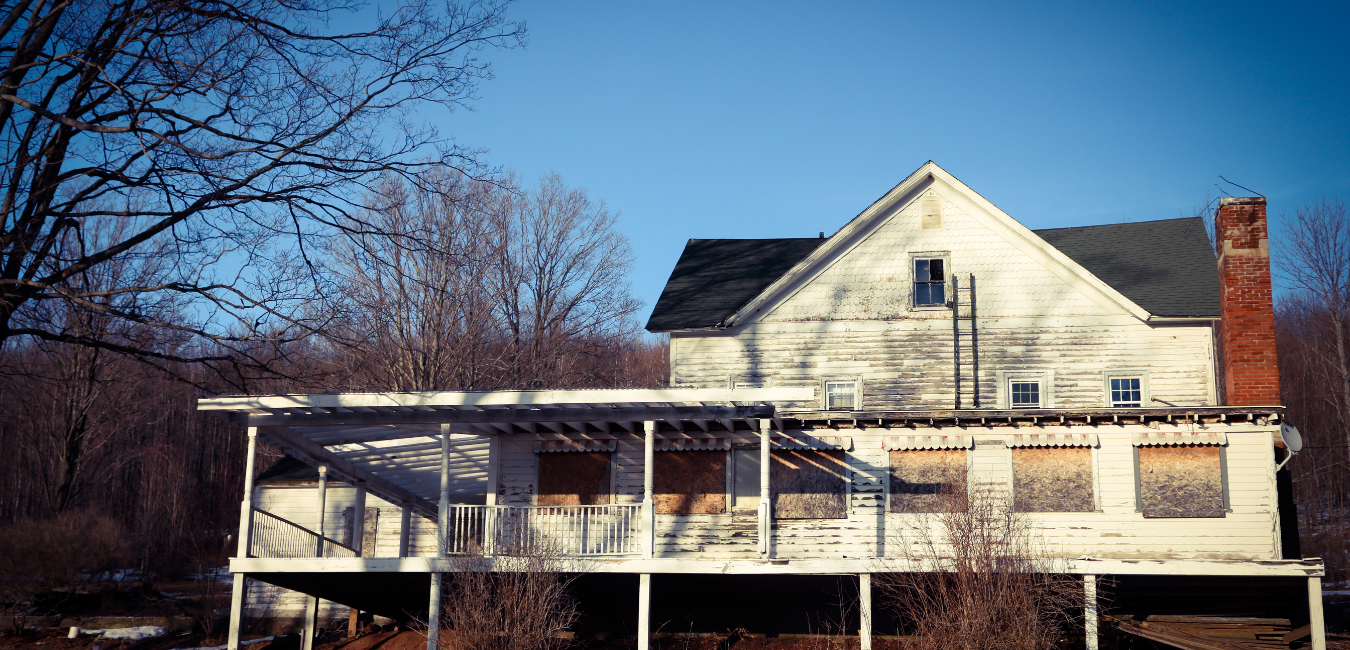When you inherit a property, there are three things you can do with it - move in, rent it, or sell it. If you're reading this, you're wondering how to prepare an inherited property for sale. Many people choose to sell their inherited properties to Ash Creek because we make the process as easy as possible but there are still issues to be considered.
The decision to part with an inherited property can be tough. In most cases, this is because of the history behind it and the memories attached to it. It may have been your parents' retirement home or your grandparents' summer house.
Still, many things may cause you to want to sell it. For many, they'd like to see the home take on a new life and to offer new neighbors to the neighborhood. The cost of maintaining the property or the work associated with it is what we see most often. This article will tell you all you need to know to sell a house or property you have inherited.
Selling An Inherited Property
Before selling a property you've inherited, there are certain steps you should take. Some of them are:
#1. Determine The Legal Status Of The House
You must find out how many people have rights of ownership over the property. If more than one person is a beneficiary, all parties will have to agree to the sale. If the deceased’s will named an executor, that person would make the decisions over the sale. You must also notify all the heirs of the property as well as people who have debts owed to them by the deceased.
This is to make sure that the right people gain from the sale. It is also to settle all outstanding debts from the proceeds of the sale.
A common question that comes up is - Can Siblings Force the Sale of Inherited Property?
"The probate process is meant to resolve any problems between two or more siblings who inherit a house. An executor/administrator will not pass a house through probate that one sibling wants to keep, and another wants to sell until they agree on what to do. But what happens when the house was kept and the disagreement arises after the title has been transferred to more than one person through probate or other procedure?
As an example, a brother and a sister inherit the family home when the mother dies. The brother had been living with and caring for the mother at the time of death. The sister wants to sell the home and use the cash for a new business. But the brother won't move out.
The sister can negotiate a buyout with her brother. He retains title to the house, and she receives a cash equivalent to her part of the inheritance. This buyout can be structured in a number of ways.
If the brother can't or won't buy her out, she can take legal action against him to receive her share of the inheritance partition action. If the court orders to sell the house, the proceeds will be divided between the siblings. This way is expensive for all parties, as the money to pay for the lawsuit is usually taken from the profit after the house sale. Not to mention the damage to family relationships caused by suing their own family members."
Source: housecashin.com
#2. Check Tax Implications & Mortgage
A percentage of the money you get from selling the house goes to the government. Inherited properties do not enjoy the home sale tax exclusion.
"Typically when you sell a home for more than you paid for it, you have to pay capital gains tax. It can range from 0% to 20%, depending on your income. Your capital gain on your home sale is determined by subtracting the purchase price from the home's current value. And you could be eligible for an exclusion of up to $250,000 ($500,000 for a married couple) if you've lived in the property for at least two of the previous five years."
Source: realtor.com
To determine if the sale of inherited property is taxable, you must first determine your basis in the property. The basis of property inherited from a decedent is generally one of the following
The fair market value (FMV) of the property on the date of the decedent's death (whether or not the executor of the estate files an estate tax return
The FMV of the property on the alternate valuation date, but only if the executor of the estate files an estate tax return (Form 706) and elects to use the alternate valuation on that return.
Source: irs.gov
Does the inherited property have an open mortgage?
"If the property has an open mortgage, it's important to discern the type of mortgage and whether it's due on sale or assumable. Most mortgages can be assumed by the mortgagor's heirs, meaning the heirs take overpayments and pay the remaining debt according to the original loan terms.
However, some loans, like reverse mortgages, specifically state that the unpaid balance is due on sale or when the mortgagor passes, requiring the heirs to sell the home to settle the debt."
Source: fool.com
Was it a Rental Property Under the Previous Owner?
"Is someone currently living in the home as a renter, or did your loved one have a live-in arrangement with a friend or housekeeper?
Both ethically and legally, you need to understand the rights of anyone who shared the personal residence for whatever reason. You will not just be able to kick them to the curb because the original owner has passed away.
The rules will vary by state. California, in particular, is well-known for its substantial renter rights. It would help if you looked at the regulations in your area to reduce the risk of a lawsuit.
If they have a written lease, you will likely have to honor it as long as they make their payments. If you're a reluctant landlord who'd instead not get into property management, know that it is possible to sell inherited homes with renters.
Tenant injuries, collecting late rent payments, renters trashing the place? That all becomes the new owner's responsibility.
It is also possible that if this renter has good credit and financial means, you may be able to agree on the purchase price of the home. This is usually not the case, though."
Source: homego.com
#3. Understand the repairs or updates that the property needs
Generally, you don't have to go through the time-consuming task of getting estimates to know if you will have a significant repair bill on your hands.
Some of the most costly repairs are:
New roof or significant roof repair
New siding
HVAC Water and Sewage problems
New septic system
Deck replacement
Driveway replacement Smoke or water damage
Fallen trees that damaged the home
Source: homego.com
We understand that inheriting a home or property can create many issues or opportunities and we'd like to help you by making the sale process easy. Contact us today so we can discuss your unique situation. There are no obligations and there will be absolutely no pressure.

